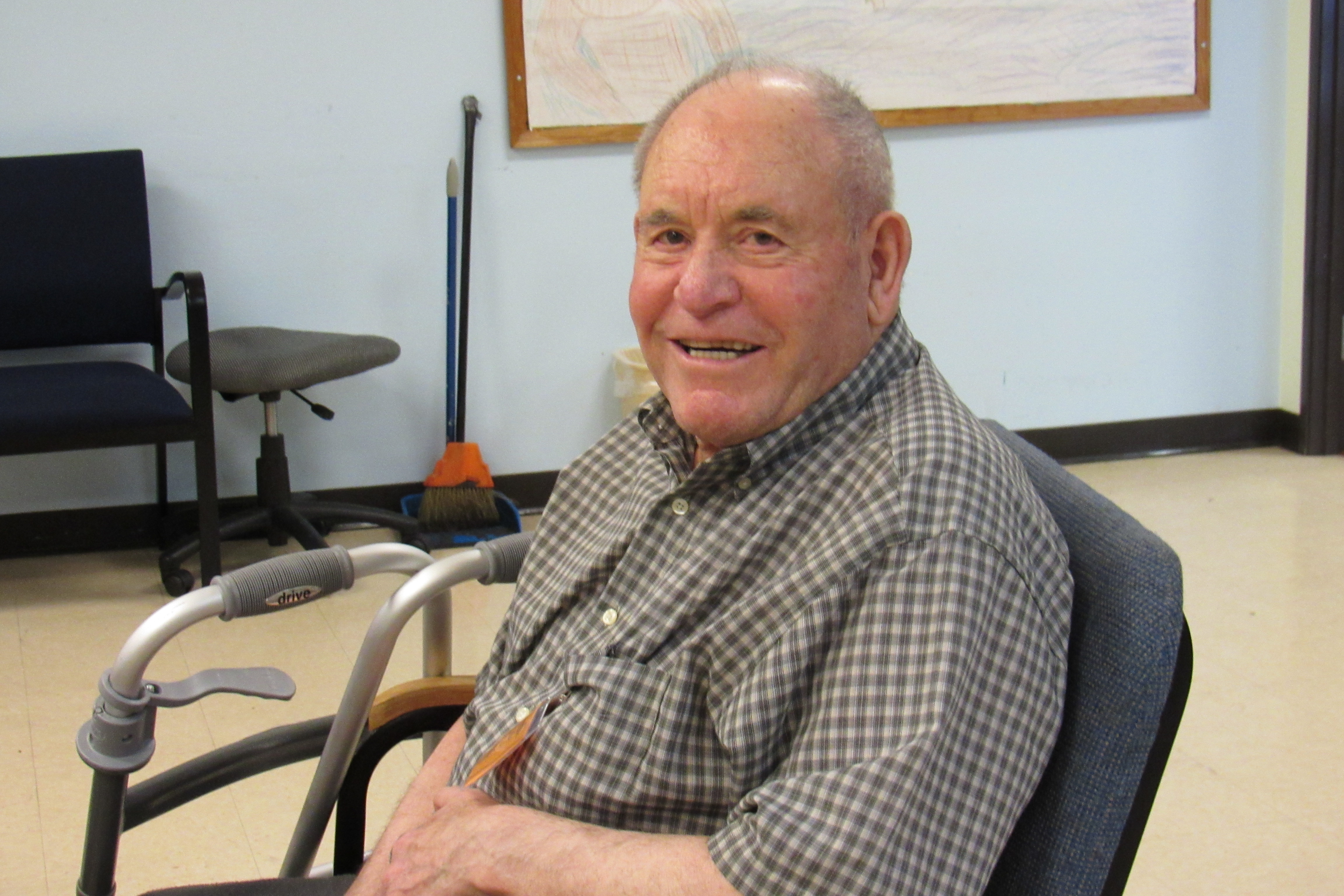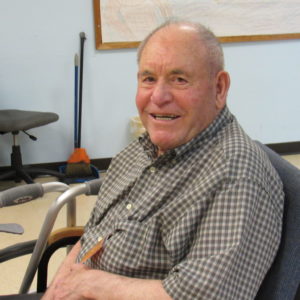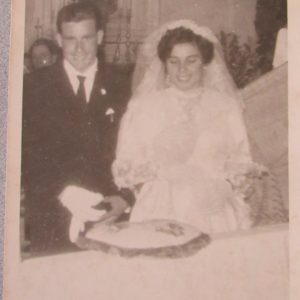Understanding Beyond Language and Dementia

October 3, 2019
 Gino Orsillo took the ball and slowly stood in an attempt to slam dunk it into the net. He missed.
Gino Orsillo took the ball and slowly stood in an attempt to slam dunk it into the net. He missed.
“Basta!” he called, laughing. Enough!
He took the ball again. Stood and, with a slight toss … swoosh! He scored again in his third try.
“Basta! Basta!” he called, with a sly grin as he pumped his arms in a small celebration.
Others in the circle laughed and celebrated with him, cheering the scores and calling out encouragement after misses. This “rowdy crowd” constitutes the memory care group at Full Life Care’s adult day health program in South King County.
Participants in the program live with dementia or other memory loss. Gino, 84, has the added distinction of speaking Italian and very little English, and is hard of hearing. But somehow it all works out well, his family said, and Gino enjoys going to what he calls his new job.
After Retirement, Odd Behaviors
 Gino and his family came to the U.S. in 1968. Gino worked for 28 years at Oberto Sausage Company. His wife, Teresa, sewed in factories around town.
Gino and his family came to the U.S. in 1968. Gino worked for 28 years at Oberto Sausage Company. His wife, Teresa, sewed in factories around town.
The Orsillos grew up in Pago Veiano, a small commune in the region of Campania, Italy.
“He liked me and came to my house. He wouldn’t let anyone else near me,” Teresa said. “I was 15 years old when he asked my uncle to marry me. He was nice looking. We married in 1958; I was 19 and he 23.”
In his youth, Gino spent time in the military and came down with pneumonia. He recovered, but it damaged his hearing. “He almost died,” Teresa said. “Maybe it was a miracle he lived.”
Gino never learned English, she said. Many of his co-workers spoke Italian and his family helped him outside of work.
“He could take the bus wherever he wanted to go, and he knew how to order at McDonald’s,” Teresa said.
In 2009, shortly after Gino retired, Teresa started noticing odd behaviors with Gino. He started showing signs of high anxiety and had hallucinations. The behaviors grew more worrisome. During a visit to the emergency room, a social worker recognized the symptoms of dementia and recommended further testing. A brain scan confirmed the diagnosis.
Dementia is a progressive disease that affects the brain. The symptoms and behaviors are different for each person, especially in the early stages, but often include memory loss and difficulties with thinking, problem-solving or language, according to the Alzheimer’s Society.
In late-stage dementia, physical and mental capabilities are greatly reduced. The person affected may not recognize family members or be able to speak properly.
Treatment includes medications, as well as cognitive therapies to keep the brain active.
A Search for Dementia Care
After his diagnosis, Gino’s family jumped into action. They started researching various services available. The couple moved into a home a couple of doors down from one of his sons. Everyone pulled together to care for Gino and Teresa.
“We knew that Teresa would need help with him, and before a crisis happens, we wanted to tap into the resources,” said Deb Orsillo, Gino’s daughter-in-law. “We found Full Life Care. We got really lucky. We came to tour and Teresa felt good about it.”
Gino started attending adult day health in the memory care and wellness program.
“It’s funny now, but for the first two days, we stayed with him,” Deb said. “Pretty quickly, he started to get comfortable.”
A few days each week, Access Transportation picks him up and transports Gino to what he calls his “job.”
The Daily Work Regime
On memory care days, the Access driver escorts Gino inside the adult day health center and ensures an employee takes him to his favorite seat. After check-in and coffee, participants sit and chat, read the paper and work on puzzles. Puzzles help with cognitive problem-solving and fine motor skill development. Participants are encouraged to walk; staff escorts participants with mobility issues.
Participants have a hot lunch, then the staff rearranges the room for chair exercise. They do shoulder pumps, various stretches and march in place.
Afterward, everyone moves into a big circle while staff hauls out rowdy-inspiring activity equipment, sometimes it’s the basketball net on a portable stand. It might be beanbag toss or punch balloons and foam noodles.
The afternoon activities do tend to get a bit rowdy. You can hear the raucous laughter and cheers across the center. One of Gino’s favorite activities is getting on the recumbent bike. He likes the movement as he looks out the window.
None of the program assistants speak Italian, but with gestures and movements, communication happens. During most activities, Gino is attentive and quick to smile and laugh. He seems to have improved since he started coming to Full Life, said Teresa and Deb.
“I notice he’s more engaged, more alert. He is asking a lot of questions,” Deb said. “Before, he was more solemn. Now, he’ll ask about the kids and grandkids. His humor and personality is back. We know he’ll never get better, but it’s good to see him more alert, engaged and happy. And it gives Teresa three days a week to take time, time to focus and take care of herself.”
